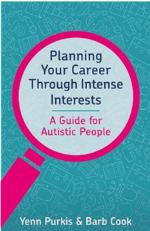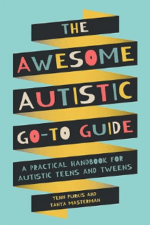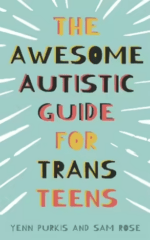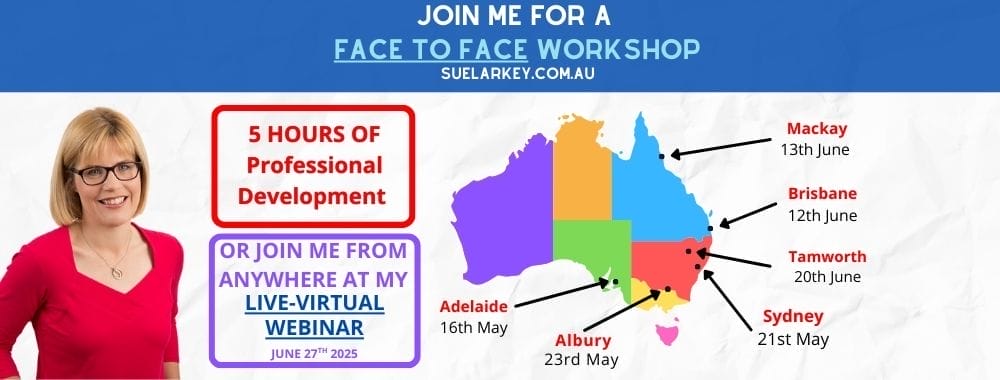
**************************************
Join me for an upcoming Workshop:
Can't make these Workshop dates? Join me for a self-paced on-demand course:
Sue Larkey On-Demand Workshops
**************************************
Empowering Neurodiversity: Yenn Purkis’ Journey and Insights
Introduction:
In today’s blog, we delve into the inspiring journey of Yenn Purkis, an autism advocate and author. There story is not just one of personal triumph but also a beacon of hope for individuals on the autism spectrum. This post is a treasure trove of insights, strategies, and resources for educators and parents, aiming to enrich the learning experience of neurodiverse children.
Autism Advocacy Success Stories
Yenn Purkis’ story is a testament to the power of understanding and embracing neurodiversity. Their experiences shed light on the unique strengths and challenges faced by individuals with autism. By exploring Their journey, we uncover valuable lessons and success stories that can inspire and guide educators and parents alike.
Top 7 Strategies for Teachers in the Classroom
1. Leverage Intense Interests for Career Planning
Understanding and channeling the intense interests of autistic students into potential career paths can be a game-changer in education. These interests, often labeled as obsessions, can be the key to a fulfilling and successful career.
2. Embrace Neurodivergent Passions as Strengths
Recognizing the unique passions of autistic students as strengths rather than distractions encourages a positive learning environment. This approach fosters self-esteem and a sense of belonging among neurodiverse students.
3. Encourage Entrepreneurial Skills in Autistic Students
Fostering entrepreneurial skills in students on the autism spectrum can pave the way for future success. By encouraging creativity and business acumen, educators can help students discover new pathways to independence and achievement.
4. Utilize Volunteering as a Stepping Stone to Employment
Volunteering can serve as an excellent opportunity for autistic students to develop skills, build confidence, and gain exposure to various work environments. This hands-on experience is invaluable in preparing them for the workforce.
5. Promote Self-Knowledge and Positive Identity in Autistic Youth
Encouraging autistic students to explore and understand their own identities is crucial. A strong sense of self-awareness and acceptance can lead to better mental health and social outcomes.
6. Understand and Respect Autistic Communication Styles
Appreciating and adapting to the unique communication styles of autistic students can significantly enhance the learning experience. Understanding these differences is key to effective teaching and support.
7. Acknowledge the Exhaustion from ‘Masking’ in Neurodivergent Students
Recognizing the mental and emotional toll of ‘masking’ where autistic students feel the need to hide their true selves Ð is crucial. We should all create environments where students feel safe to be their authentic selves.
Key Quotes from Yenn Purkis
“If you’re autistic and you have a passion, it doesn’t take a lot of thinking to see ways in which that passion can become your job.”
Conclusion:
Yenn Purkis’ journey is more than just a story; it’s a source of inspiration and a guide for understanding and supporting neurodiversity. By embracing the strategies and insights shared in this post, educators and parents can create a more inclusive and empowering environment for neurodiverse students.
Earlier Yenn Perkis Podcast – THE WONDERFUL WORLD OF WORK
-
The Parents’ Practical Guide to Resilience for Preteens and Teens on the Autism Spectrum
$45.95 -
The Parents’ Practical Guide to Resilience for Children Aged 2-10 on the Autism Spectrum
$45.95 -
Planning Your Career Through Intense Interests
$42.95 -
Awesome Autistic Go-To Guide: A Practical Handbook for Autistic Teens and Tweens
$42.95 -
The Awesome Autistic Guide for Trans Teens
$42.95











 Sorry we no longer ship items outside Australia. Please consider the digital versions of Sue’s Books –
Sorry we no longer ship items outside Australia. Please consider the digital versions of Sue’s Books – 